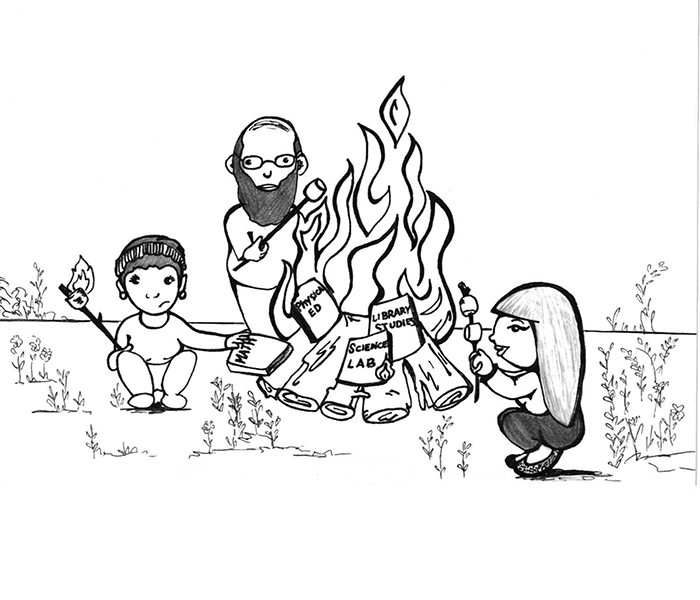Requirement overhaul
Aug 23, 2017
California State University officials enacted a policy that will remove intermediate algebra requirements for non-Science, Technology, Engineering and Mathematics (STEM) majors with the changes going into effect in fall of 2018 for students transferring from community colleges and incoming freshmen.
Although the change may restrict historically underrepresented students from receiving a well-rounded education, it will make it easier for them to earn a degree in their desired field in a timely manner and move on to the next phase of their educational path.
To expect students that are the product of a public school district that is consistently neglecting to instantly be able to compete on an academic level is unfair.
Forcing them to spend extra time at a community college rather than working toward employment and earning a living wage is counterproductive to their growth and the growth of our community as a whole.
The changes in the CSU system will secure higher success rates for the underrepresented populations transferring from community colleges.
CSU Public Affairs Manager Elizabeth Chapin said algebra-based math courses will not be eliminated from a CSU’s general education requirements.
“Prerequisites for courses will now relate more directly to the skills developed for that particular course of study,” Chapin said.
The courses offered at CSU’s will match the student’s major to set them on the right path to their degree.
CSU courses will now aim to help transferring students from community college and freshmen students to start college-level courses no matter their level.
Students with non-STEM related majors at CSUs can still enroll in intermediate algebra courses, however, enrolling students will be slated to take classes necessary for their transfer degree in their specified major.
At Contra Costa College courses are offered to set students on a path with little or no delay conforming to the CSU model so students can achieve quicker transfer rates.
Mathematics Chairperson Terril Mead said Math-125 started being offered four years ago to non-STEM majors so they can take a transferable math requirement.
“The CSU system is now acting in a similar manner by changing their graduation requirements. We see it as a situation where they are following our lead, more than we are reacting to their change,” Mead said.
In the past, CCC students were required to complete prerequisites in order to move on to the next math course, which was a setback for those student who struggled with arithmetic.
When Math-125 (algebra for statistics) was created, students were able to move to Math164, which qualifies for CSU transfer.
Math professor Edward Cruz said taking Math 120 has been less of a help and more of a hindrance for students.
The average expected time for a student to transfer is two years, but in reality students can spend up to 6 years in community college and when they transfer, some of them, have to start all over.
According to Public Policy Institute of California, a nonprofit research institution, students from groups historically underrepresented in higher education are more likely to take remedial courses and are less likely to complete college-level courses in math and meet their educational goals.
Latino and African American community college students fall under this percentage, enrolling in remedial courses that do not count toward a transfer degree but instead to help the student catch up all while delaying their stay at community college.
CCC has provided learning communities, such as Math Jam offered during the summer, for students who need assistance in math starting from Math 118 to Math 190 (calculus).
In order to help advance generations to come, paving the way for more accessible education and more tools to rely on.


